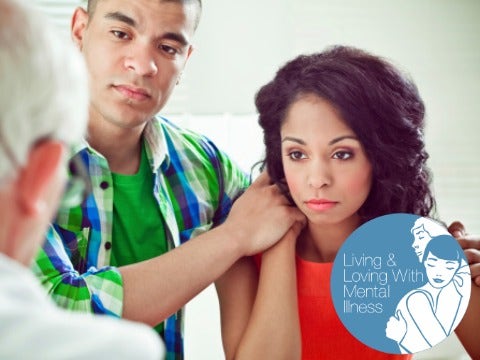Love & Addiction: Helping Your Partner Turn Toward Recovery
From educating yourself to protecting your children, addiction brings many issues.

According to a YourTango Experts study, addiction is the biggest mental health challenge couples face. Armed with this knowledge and some advice from mental health professionals, you can work toward a healthier future with your partner. We asked Psychologist Dr. Robin Goldstein how couples can become healthier and happier in the face of things like alcoholism and sex addiction.
1. Stop pretending it's not a big deal. The hallmark of addiction is denial, and this is as true of partners as it is of addicts. So the first challenge in a relationship with an addict is admitting that the problems exist. Confront your own denial. When our lives are at stake, it's easy to make excuses for the addict. "She only gets drunk a couple times a year." "He lost that sale he was counting on so much; he deserves to blow off some steam." "So he goes to strip clubs occasionally; all guys do it." "She likes to gamble: Why should I care? It's her money, like she says."
2. Don't get your children involved. If there are children, stop teaching them to deny their own reality by saying, "Daddy didn't mean it, he really loves you a lot" when drunkenness causes the other parent to say hurtful things. It is also inappropriate to enlist children in helping to confront the addict. That is your responsibility as the adult. An eight-year-old should not be coached to say, "Tell Mom how awful she was last night when she had too much to drink."
3. Educate yourself about addiction. Al-Anon and Nar-Anon are invaluable programs for the partners of addicts. There are also support groups for those living with partners who have gambling, shopping, or sex addictions. Read all you can. Go to online message boards. When there are serious problems, many want to look the other way. The less we know, the easier it is to just wait and hope things will improve.
4. Stop thinking, "If he loved me, he wouldn't do this." Addictions are only about themselves. They destroy ambition, self-esteem, and the ability to think of others. The very nature of addiction is an out-of-control drive that surpasses everything. It may feel intensely personal, but it is not.
5. Addictions are difficult to treat, but they are not hopeless. We have treatments, but they are not 100 percent successful, just as treatments for heart disease and cancer are not 100 percent successful. In fact, the rate of recovery (about 40 percent) is equivalent to other serious chronic diseases. There are a range of treatments and one size does not fit all. That isn't an excuse not to try AA or another treatment program — it might be just the right thing for the addict in your life. There are also medicines, physicians, rehabilitation centers, as well as self-help approaches.
6. The motivation for change has to be the addict's. If you are doing all the research, reading, urging, and studying, the addict in your life is not really going to benefit. When an addict seeks treatment themselves, then the chance for progress is real.
Follow Dr. Goldstein on Twitter: www.twitter.com/DrRGoldstein
More love advice from YourTango:

